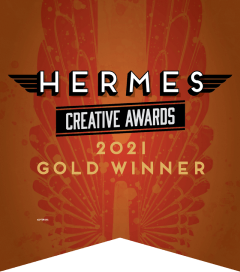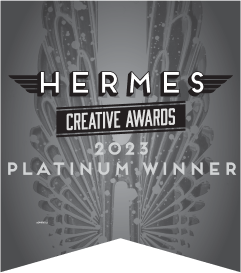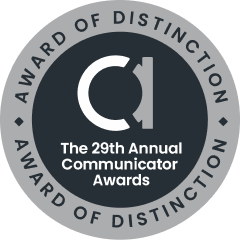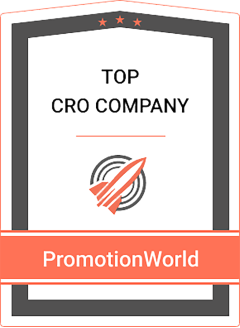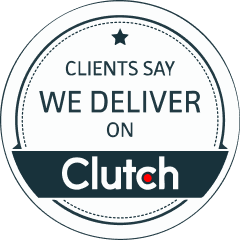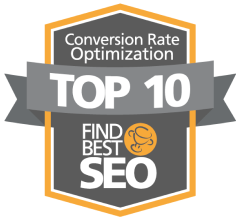Guest: Harry Rahman | CEO | Veloce Innovation
We all know there isn’t actually a magic formula, BUT, there are certainly things that work and things that don’t. Join us as Harry Rahman, the CEO of Veloce Innovations, discusses the ups and downs of marketing at the head of an early growth phase company. Hear the strategies he used to springboard the company to the next phase of growth.
Transcripts
[Laura] (00:07): Hello, and welcome back, everyone. I’m Laura Cuttill, your host. I have here with me today, Harry Rahman. Harry is the CEO of Veloce Innovations, and he’s come to us from a sales and marketing background in some major global brands in the window film and retail industries. He’s launched one company, seen it grown and acquired, and now he’s working on a second vision – Veloce Innovations. He’s here with us to talk a little bit about adapting big company strategies to every phase in business growth cycle.
[Laura] (01:05):
Welcome, Harry.
[Harry] (01:06):
Laura, thanks for having me. Looking forward to the chat and thanks for the opportunity.
[Laura] (01:12):
Great. So to get started here a little bit, I think everybody would agree from the jump that the idea of a magic formula is an illusive objective. But with that being said, there’s some solid ways of building a business or a product line that consistently yield an ROI. So some elements have to change with where you are in the business growth cycle, the evolution of marketing practices, and some have consistently stood the test of time. Let’s start with maybe a little bit of a compare contrast, you’ve been a part of the big corporate world, what kind of marketing initiatives do you think translated well into starting and growing your own companies and maybe what ones didn’t?
[Harry] (01:51):
So, Laura, I think that obviously one of the biggest challenges in the initial growth phases is resources, you’re trying to be everybody and you’re trying to do everything. I think that one of the things that we had in a bigger platform or a much bigger brand, in a later stage of a company was the fact that we just had a ton of resources and we could specialize. So, by wearing multiple hats, one of the biggest issues that I have found at Veloce in the startup phases was we were trying to do everything and we really sucked at doing everything.
So we were trying to do everything and reality is that if I was to go back, I would probably just pay to have the things that we were not good at done because we threw a lot of money out of the window trying to do stuff we were not good at. Si I think in a nutshell, we think about how much money we are saving by doing things ourselves instead of realizing instead of thinking of cost, we should be thinking about return, which is go ahead and pay twice as much and get five times in return.
[Laura] (03:06):
I can see that, I can see that. Maybe a little bit about buyer journey, we talk a lot about that today and the idea of maintaining a customized experience from your customers from first contact, through sales, all the way through support as a customer. Given that you’re an OEM, to what extent has focusing on this impacted your demand generation initiatives? How has that impacted what you do?
[Harry] (03:32):
So you said a couple of keywords, demand generation. I feel that one of the early mistakes we made was we started going towards demand generation too fast instead of building our portfolio and our infrastructure. So as soon as that was built, so we tried to do something and… Honestly, consumer demand was not something that we are the experts in. So we are great at industry demand, we are great at business to business. But consumer demand A, I think we should have waited a little bit longer, and then the second thing is we should have also again found a company to work with that was able to do that. But I think the biggest challenge initially in a startup is the target market or even in your growth phase is the target market, just defining who you want to go after.
Most people have a little bit of an idea or a decent idea of who they want to go after, and then the question becomes what bait am I going to give them? The conventional bait’s you really have to have your competitive edge. We were fortunate that luckily I have a background in marketing, but we also hired a strategic marketing consultant that allowed us… Because one of the other issues that we face is that we’re so deep into our business that it’s tough to stick your head above the water and look at it from a holistic view. So we engaged a strategic marketing consultant who at that time fit our budget. But honestly, I think we should have just gone on and hired a marketing agency that would allow us to do that sooner rather than later.
[Laura] (05:28):
Sure. Do you feel like that was a successful experience?
[Harry] (05:34):
I think again, it was successful but it wasn’t. The ROI could have been a lot more. I can say that in hindsight because we were looking at what fits our budget instead of what will allow us to pay for three times our budget, so we were thinking about costs instead of return. Had thought about a return, we would have done things a little bit differently and had a more diversified approach to marketing rather than just what is within our head.
[Laura] (06:08):
Sure, that makes sense. Leveraging on that, what role does the human element play in general maybe both on your team and outside your team, especially when, like you mentioned, resources are limited? We don’t like to deal in budgets, but budgets are a very real thing.
[Harry] (06:27):
So I was in a meeting in China about 10 years ago and I met a gentleman who is just a wealth of information and just very visionary who I look up to, he’s in our industry. He said something to me, in fact, he was runs I think the largest window film company in the world, and he said something to me that really stuck. That was that, “We don’t take people from zero to five on a scale of 10. If we find people that are good at what they do, we make good people great. We don’t make people that are not good at something and get them to par.” He said, “It just takes too much energy to take somebody that’s not good at something and make them half as good. Instead, we take somebody who’s good, who’s passionate and we make them great.” So I think one of the things that we were able to do was we were able to identify the right people.
Too often, Laura, one of the mistakes that companies make is they find somebody and they try to fit them in the position instead of first defining the position and then trying to see if this person fits that position. So we were very thankful that we teamed up with an HR consulting firm as well that helped us do that. But same thing on the marketing site, I think too often we think about what we are good at and say, “Okay, here are the five things we’re good at and that’s what we’re going to do.” Instead of realizing what do our customers really need and then providing them what they need rather than what we’re good at.
So again, I think one of the things I would highly say is don’t factor. Reverse engineer it, try to find out from the market, do some market research or have somebody do some market research, try to figure out what they need, and provide them what they need rather than what you are just good at. Survey the market, find out what your target market needs, do some market research or hire a company to do some market research, and then give them that. And make that part of your competitive edge.
[Laura] (08:52):
Sure. It’s best marketing practices. We’ve been in that field for 15 years and now I wish a little bit we’d been around to help you back in the day. It’s all good.
[Harry] (09:03):
For sure.
[Laura] (09:05):
What are the top challenges you face, particularly with Veloce and growing a business, the pain points as you go along?
[Harry] (09:15):
The biggest challenge was definitely limited resources. We were doing, like we discussed before, we were doing things we shouldn’t have done. We should have hired the right companies to do it instead of just trying to do it. We were hustling, we were a small team and we were working 18 hours a day. Again, it wasn’t even the 18 hours, it was just that we were not working our strengths, so that’s our biggest. So my advice to companies in the growth phase or the startup phase or the growth phase is that think return, don’t try to do it all yourself. Because what you’re going to do is you’re going to end up spending a lot of time and effort and you’re not going to see a lot of return for it.
Just to let you know, over the last couple of months, we’ve spent about $15,000 to $20,000 in a pay-per-click marketing and Google AdWords and stuff, and our return was not even 10%. Laura, we threw that money out of the window because we were trying to do it ourselves, and we just threw it out of the window. So I would continue to say that just focus in on what you do well, but at the same time, wherever you don’t… I don’t change the brakes or tires on my car, you know what I mean? And it’s not that I can’t. So I think that limited resources, number one, number two is don’t try to be the expert in the fields.
Then the other thing is that a lot of companies focus in on what I would call the egg instead of the chicken. So the chicken is what I would describe as a business to business relationship that continues to lay eggs over time, as opposed to the egg which you go buy an egg, you crack it, and you don’t have much to show for it, now you have to go buy another. So in business, if you have a model where you can focus in on business to business as well as business to consumer, that business to business continues, you build a relationship and it continues to lay eggs instead of just focusing in and going buying yourself a lead every single time. So I think those… Another thing I think we should have done is I think we should have done more PR, I don’t think we did enough PR. I think that would have opened some unconventional channels for us that we have not been able to open yet.
[Laura] (11:59):
So do you have plans to do more of that in the future?
[Harry] (12:04):
We have to. I see it as… So every business goes through a cycle, so ours is in the winter, we’re a little bit slower, so 100%. And to tell you the truth, so for us, this is a great time to plant seeds, and I think that’s one thing. Another thing that I think in my previous life we didn’t do enough of is that we planted some trees and we grew our customer base and we saw a beautiful farm, not realizing that these trees have cycles and these customers have cycles, that you lose some and you gain some and so forth. So in a perfect world, I think another thing that companies don’t do enough of is in the off season…
Your phone rings whenever it rings because of something you have done. The phone ringing is a result of something that you have done. So it could be planting a seed or calling on a customer, whatever that is example that we use. So if you want that phone to continue to rink, then you have to continue planting seeds for whatever industry you’re in. I think that’s another thing, that we get comfortable, we start seeing some customers go up, and we’re like, “Wow, it’s great.” Not realizing that all you have control is continue to do your marketing, continue to… So we actually spend. In our off season, we work even harder in marketing than in our on season because in the on season, people are so busy getting customers that they don’t have the time to talk and listen. So this is your time to plant, plant your seeds.
[Laura] (13:52):
Sure. So on that note, in terms of diversifying your marketing efforts… We tell our customers all the time, there’s no magic bullet, there’s no one thing that’s going to make or break your marketing efforts. It’s going to be consistency and a variety of efforts over time that gets the job done and feeds that sales pipeline. What kind of advice would you offer people in terms of finding those elements that work in creating their magic formula?
[Harry] (14:28):
I think it’s a pretty good broad question and it really brings up the point of, I think that not enough people do their research on how to get their target market. I think that really the answer lies in… It’s like before you’re going to cook something, you got to make sure that you have all the right ingredients to cook it. So I think that the marketing is the cooking. And I think before you get to even that, I think there has to be enough market research to make sure that you are going to go after the right kind of customer with the right kind of bait. There’s so much work that needs to go into identifying your customer, their current needs, and more importantly, Laura, not just the current needs but their future needs. Because you can fulfill their needs today, you have to lead customers, whether it’s an end consumer. Look at what Tesla has done in terms of electric cars, they didn’t even exist at one point and then they came in and now they’ve made it look like, okay, it’s a necessity.
So go… The old adage, I think there was an example I think Henry Ford was asked back in the days before the cars came out, what do you think…? If he asked his customers, “What do you want?” They would’ve said faster horses or something along those lines, a longer-lasting horses and so forth. So I really think that understanding your customer, doing market research is the first. And it’s never too late, I’ve seen companies that have been around for 20, 30 years and they still don’t and their customers also change. So understanding your customer is a constant battle, it’s not something that if you understand them five years ago, that you… Your customers changed, your customer technology has changed, embracing technology. So continue to learn and stay connected with your customer.
I think that as a growing business, we hear what we want to hear. So I really think that there should be an external factor that should come in and help you hear the things you don’t want to hear. Because when we talk to our customers, we hear the things we want to hear. So I think that basically in a nutshell is ask for help. If it’s accounting, if it’s marketing, if it’s PR, if it’s whatever it is, ask for help because you only have one perspective. You have your perspective and you really need somebody around you to be able to see a lot more than you.
[Laura] (17:39):
Very wise words of advice, there’s wisdom in a multitude of counselors, right?
[Harry] (17:44):
Yes.
[Laura] (17:45):
Very good, very good. Well, thank you so much for your time today, Harry. I super appreciate it and I hope you’ll come back on in the future and grace us again with an update of Veloce.
[Harry] (17:56):
Laura, thanks for having me.








